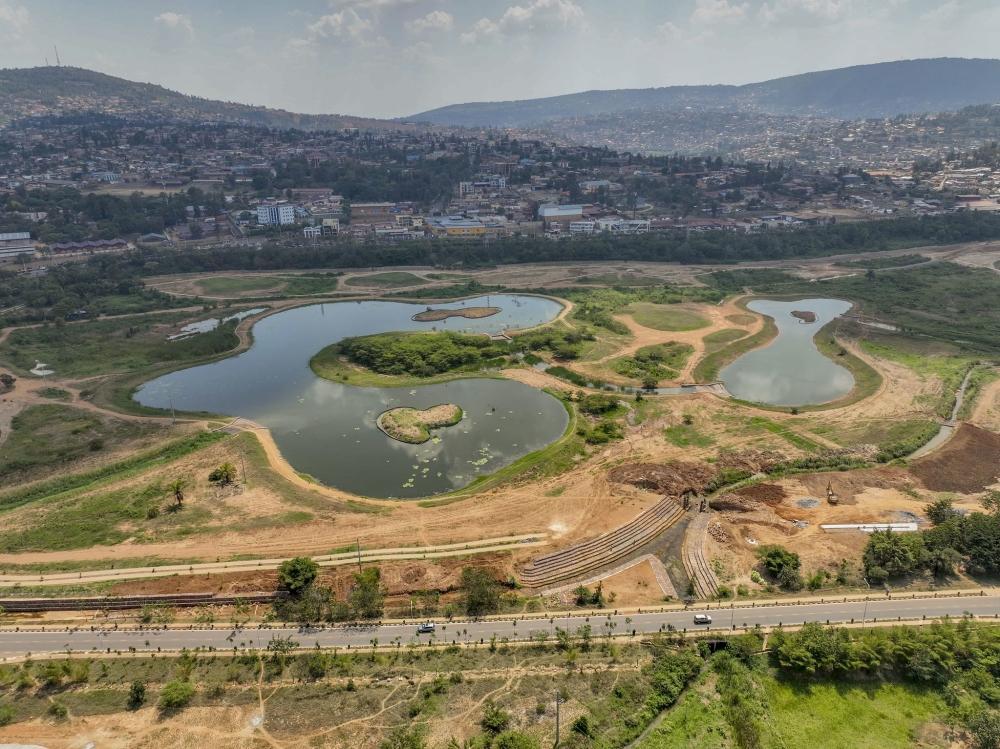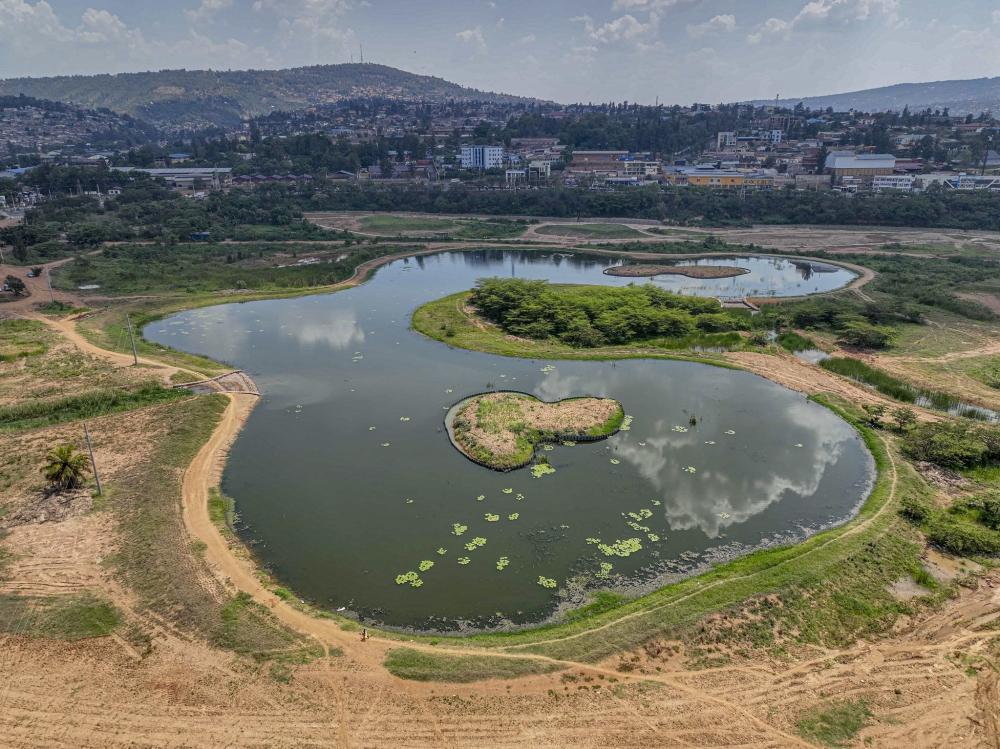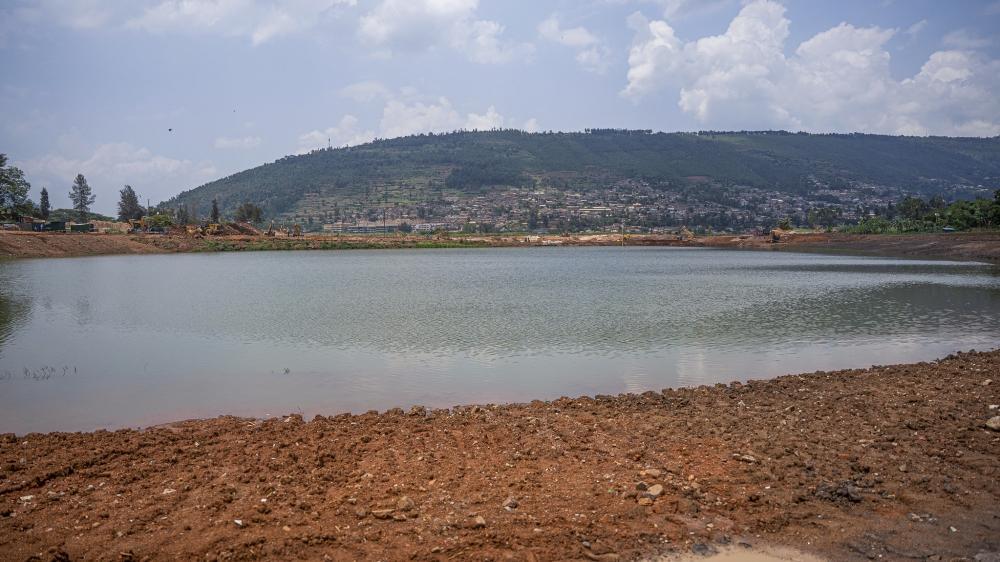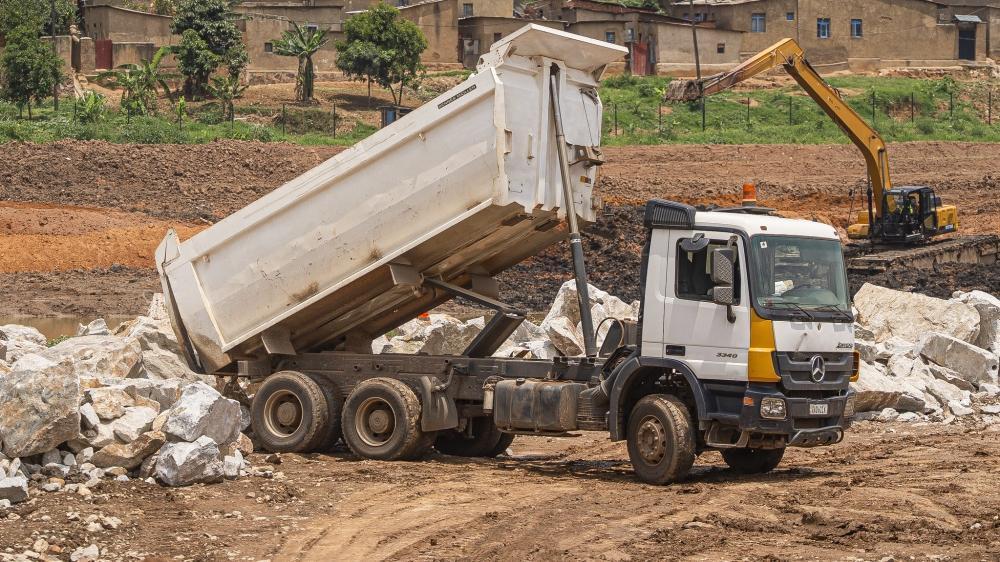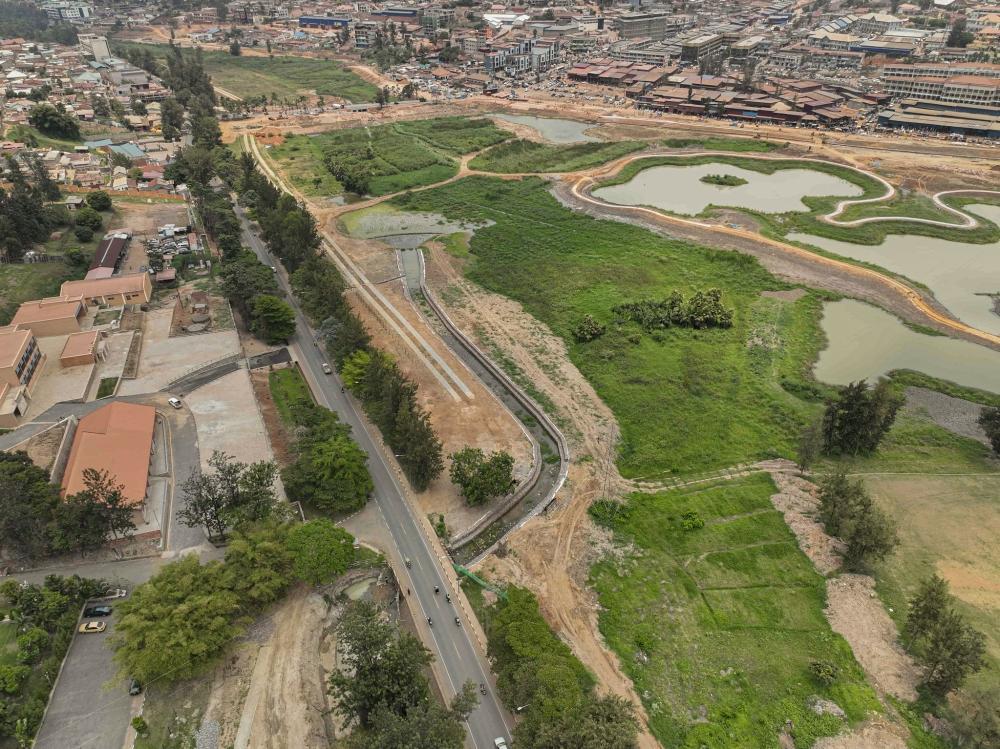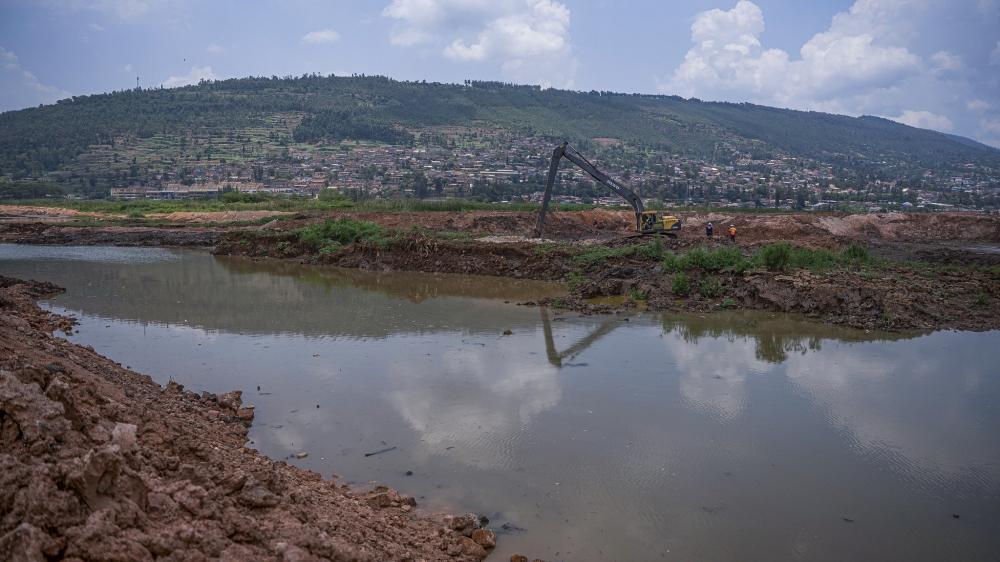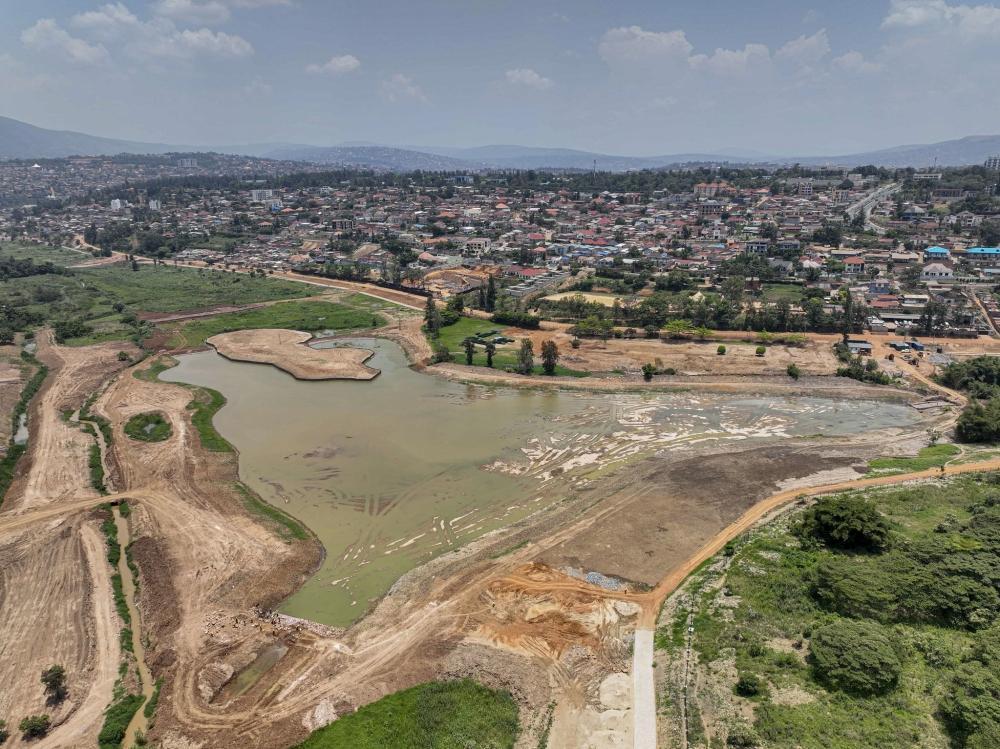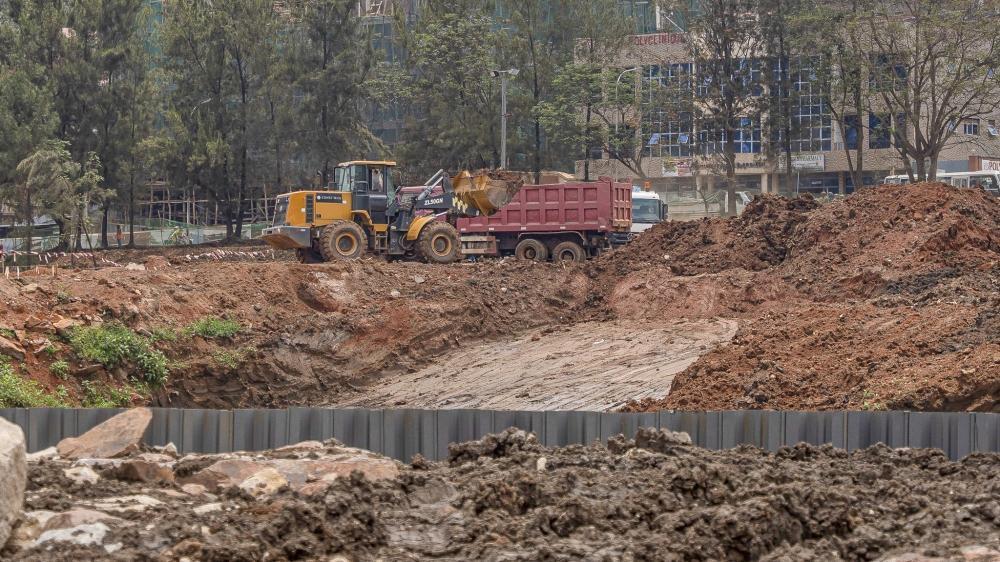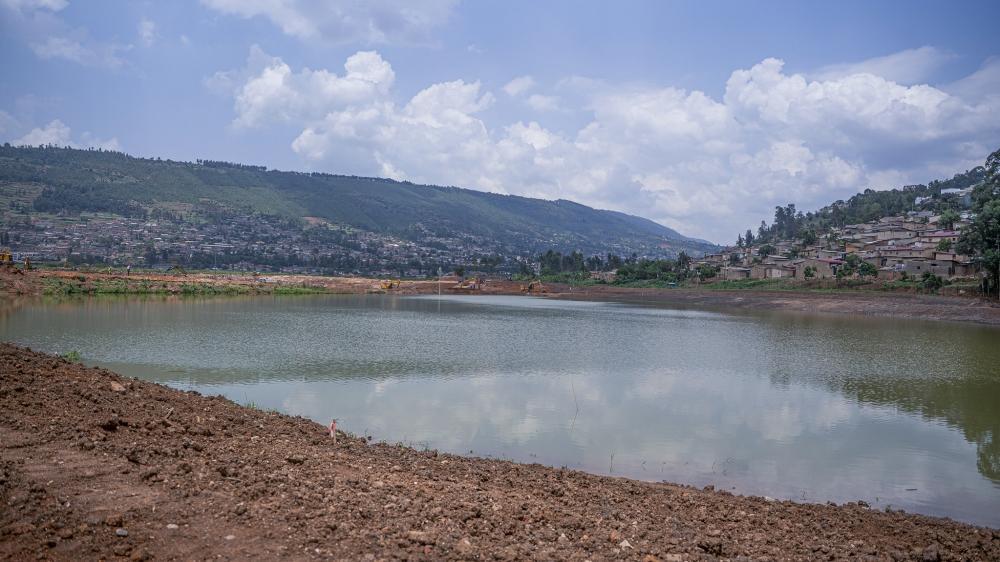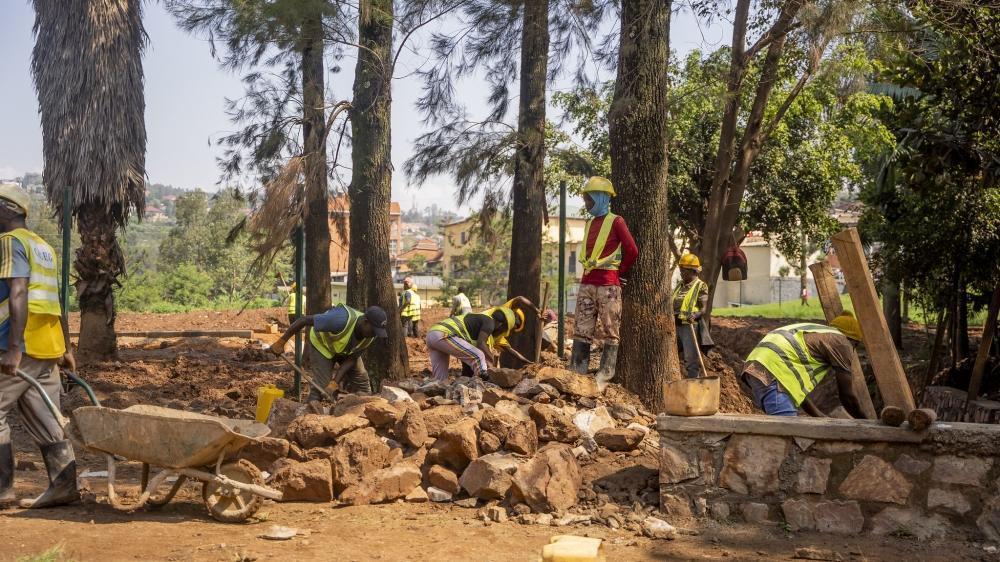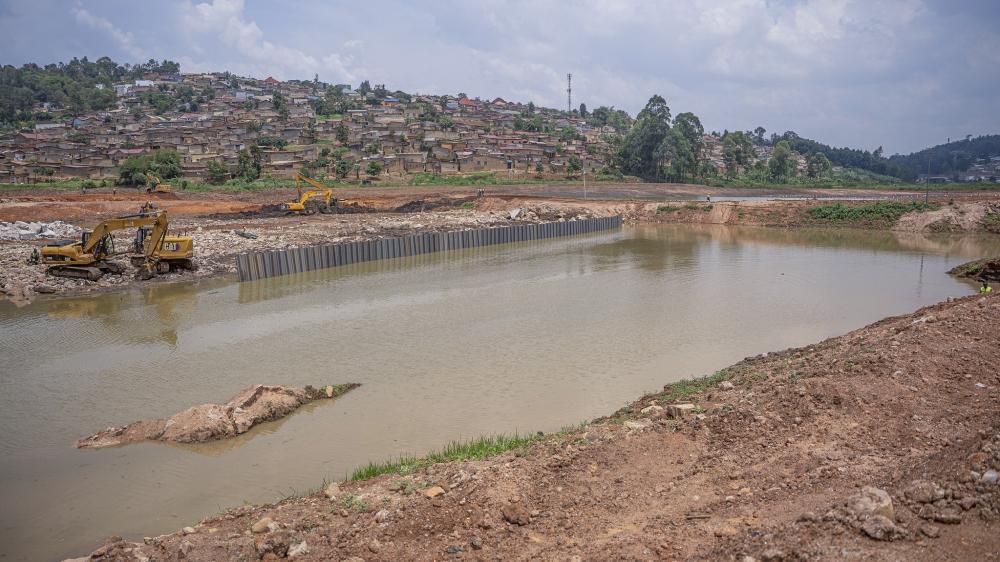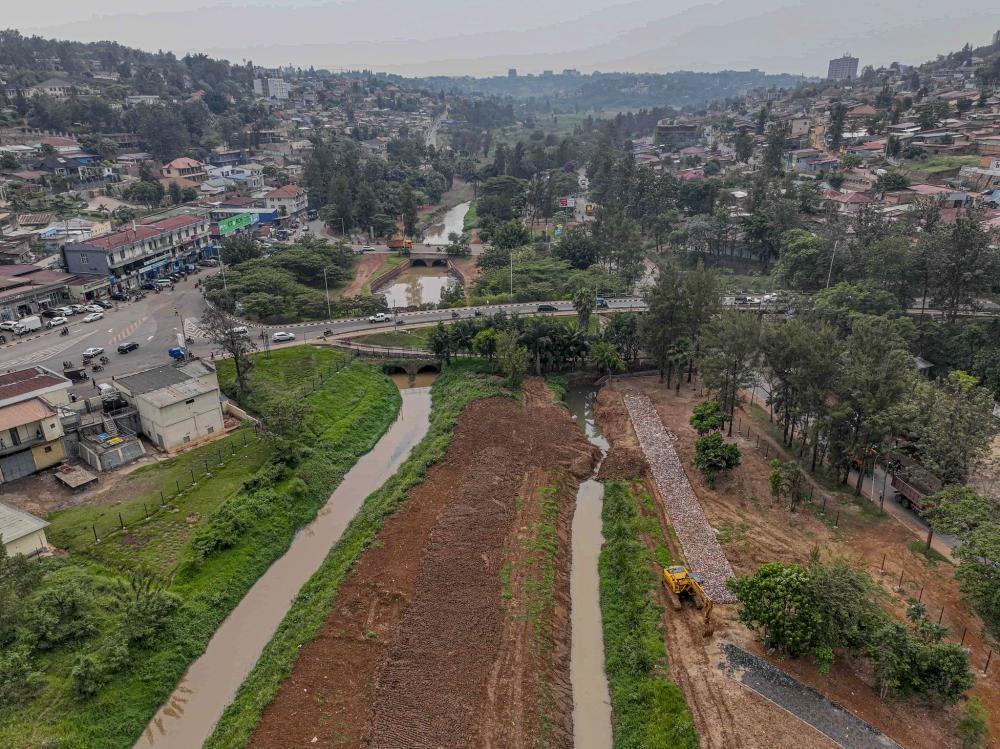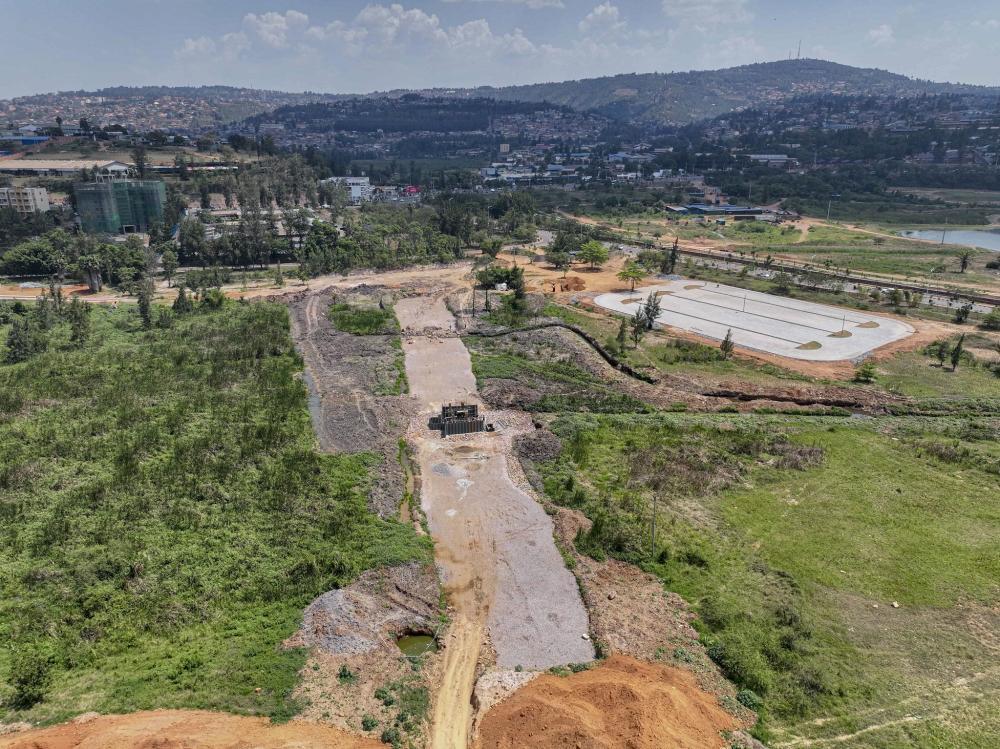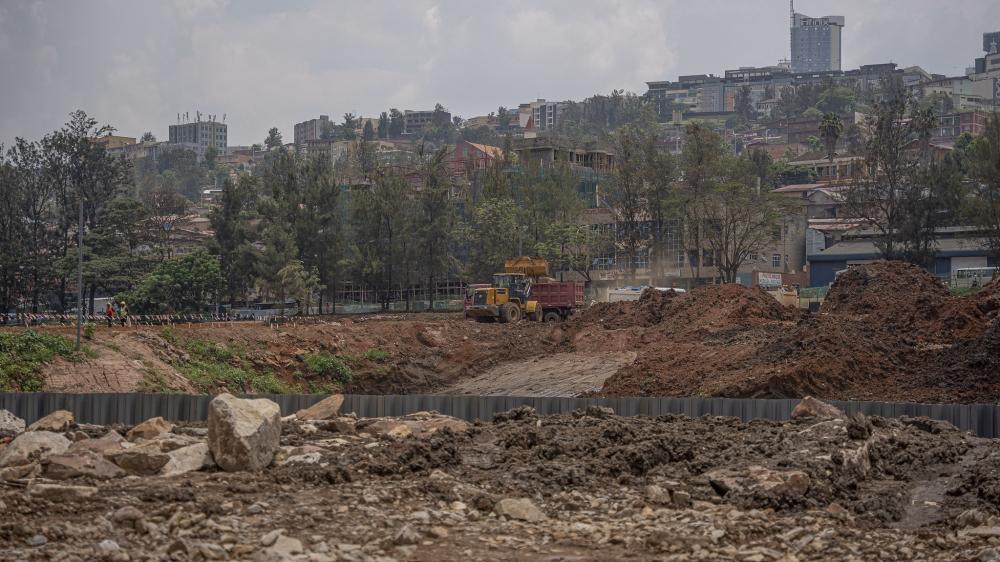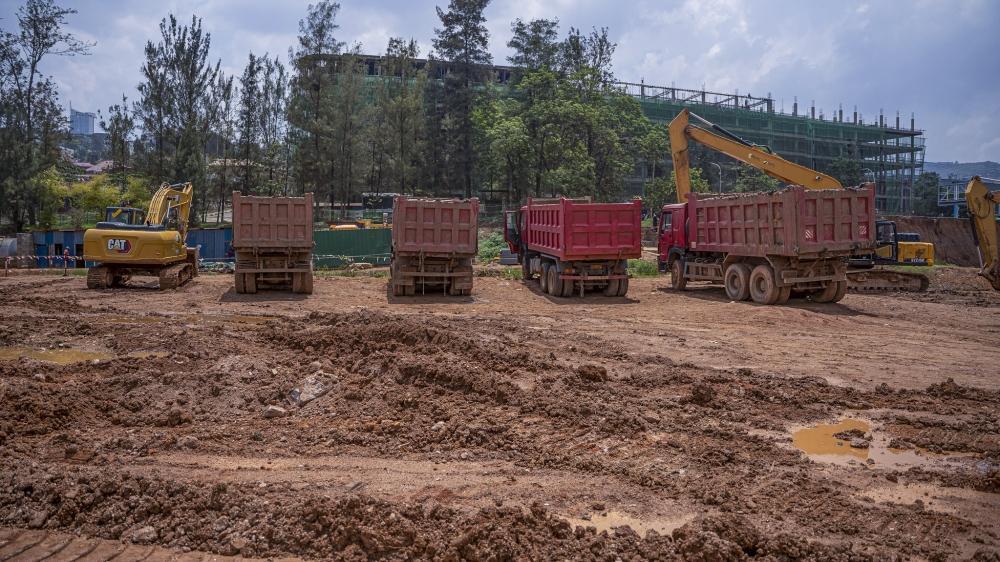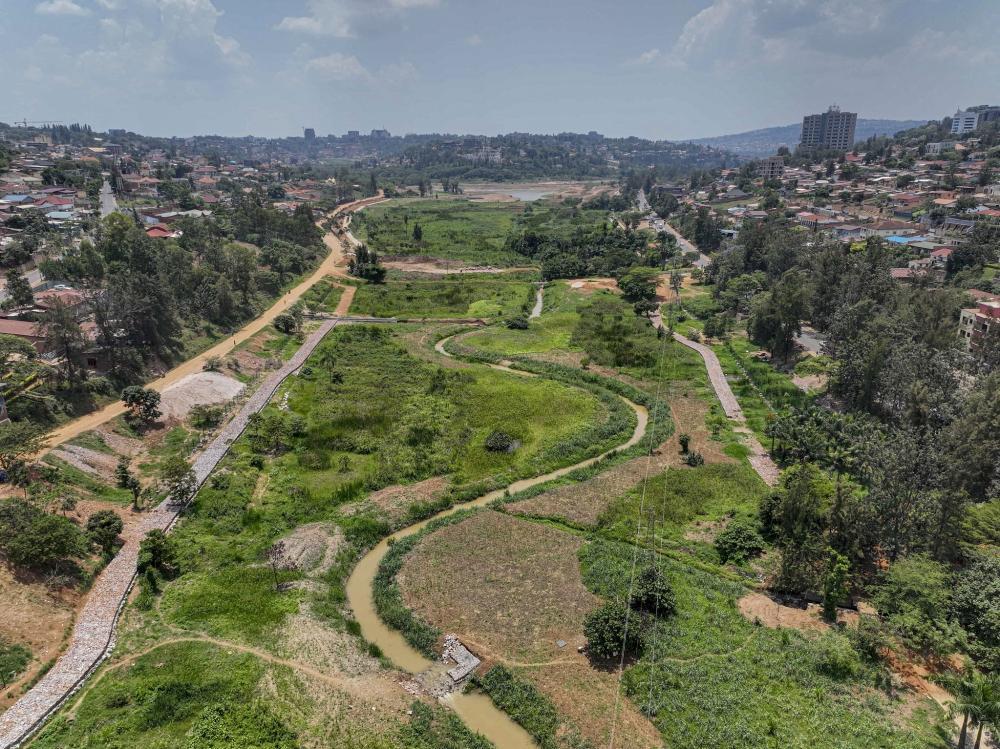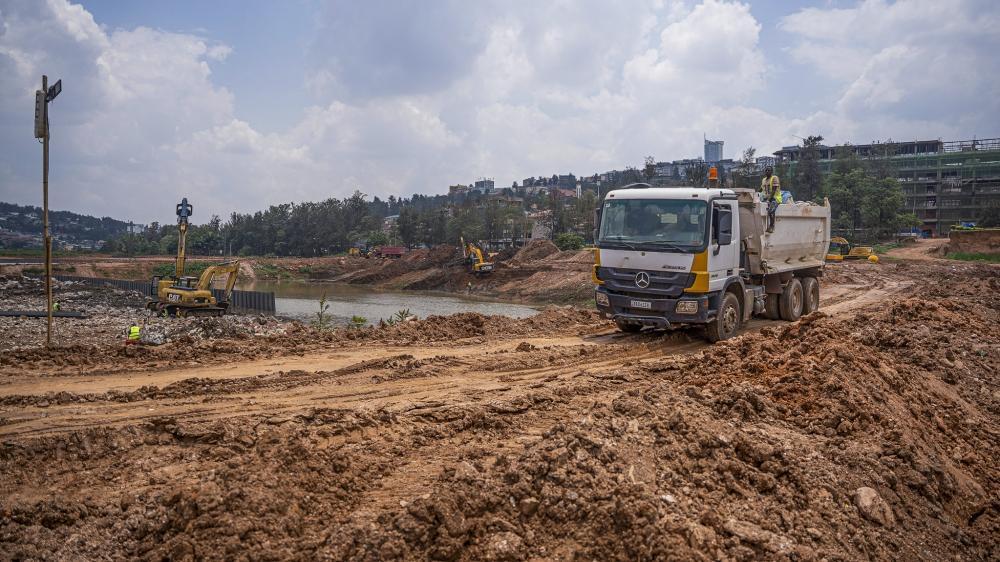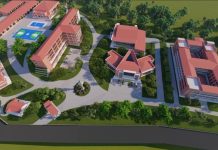Africa-Press – Rwanda. Kibumba, Nyabugogo, Rugenge-Rwintare, Rwampara, and Gikondo wetlands are on course to become inspiring examples of how degraded ecosystems can be transformed into vibrant, ecological, and recreational city spaces.
Kigali’s ambitious wetland rehabilitation project is restoring 491 hectares of degraded wetlands across the five sites, integrating environmental conservation, flood control measures, and recreational spaces.
Rehabilitation works are currently being carried out by Real Contractors at five major wetlands: Kibumba (68 hectares), Nyabugogo (131 ha), Rugenge-Rwintare (65 ha), Gikondo (162 ha) and Rwampara (65 ha).
The project aims to enhance the city’s landscape, promote recreational activities, mitigate flooding, improve wetland biodiversity, and enhance water quality.
As part of the initiative, 12 artificial ponds and 14 artificial islands are being created across the five wetland areas.
In addition, 61.5 kilometers of walkways and cycle lanes are being built to encourage eco-friendly mobility and provide the public with greater access to nature.
To enrich biodiversity and provide educational and leisure opportunities, 17 botanical gardens are being established.
More than 6,000 trees will be planted along streams and around the newly created ponds as part of the city’s broader ecological restoration efforts.
The New Times photojournalist Kellya Keza and reporter Michel Nkurunziza toured the wetlands to capture the ongoing rehabilitation and transformation.
An aerial view of the ongoing rehabilitation works at Gikondo Wetland, formerly the Gikondo Industrial Park. The site will feature four artificial ponds and more than 1,560 newly planted trees as part of the restoration project. Courtesy
An artificial lake under construction at Nyabugogo Wetland. Upon completion, a total of 12 artificial ponds will be created across the five wetland sites — five in Kibumba, four in Gikondo, one in Rugenge-Rwintare, and two in Rwampara. Photo by Kellya Keza
A key component of the wetland rehabilitation project is the integration of new water features aimed at supporting water retention, biodiversity, and flood control. Photo by Kellya Keza
An aerial view of the ongoing rehabilitation works at Kibumba Wetland, located between Gisozi business centre, the former UTEXRWA premises, and the Rwanda Red Cross headquarters. Courtesy
A newly created pond at Nyabugogo wetland. Photo by Kellya Keza
A landscape view of Rwintare wetland (at former Kimicanga area). Photo by Kellya Keza
Wetland rehabilitation work is currently underway across five major wetlands—Kibumba (68 ha), Nyabugogo (131 ha), Rugenge-Rwintare (65 ha), and Gikondo (162 ha) and Rwampara (65 ha). Photo by Kellya Keza
A view of the newly created lake at Nyabugogo Wetland. The new artificial lake is expected to serve as a major water retention and ecological restoration area within the city. Photo by Kellya Keza
The main objectives of the five wetlands rehabilitation project include enhancement of the city’s landscape and development of recreational activities, flood mitigation, improvement of wetlands’ biodiversity, and water quality improvement. Photo by Kellya Keza
Upon completion, a total of 12 artificial ponds will be created across the five wetland sites — five in Kibumba, four in Gikondo, one in Rugenge-Rwintare, and two in Rwampara. Photo by Kellya Keza
Nyabugogo wetland starts from the Kinamba area and is located between Gatsata, Muhima and Gisozi sectors.
A view of Gikondo Wetland. The rehabilitation of these degraded wetlands could directly and indirectly benefit 220,500 people in flood-prone areas and at risk of water crises, given that wetland degradation and pollution have significantly affected water quality and quantity.
The project started in 2021 with designs, while construction works began in March 2024. Photo by Kellya Keza
The rehabilitation works are being carried out by Real Constructors, a local construction company. The project started in 2021 with designs, while construction works began in March 2024. Photo by Kellya Keza
A total of 61.5 km of walkways and cycle lanes are being developed to promote eco-friendly mobility and public access to nature. The project started in 2021 with designs, while construction works began in March 2024. Courtesy
In addition to the ponds, a lake is being developed in Nyabugogo wetland. It is expected to serve as a major water retention and ecological restoration area within the city. Photo by Kellya Keza
For More News And Analysis About Rwanda Follow Africa-Press

